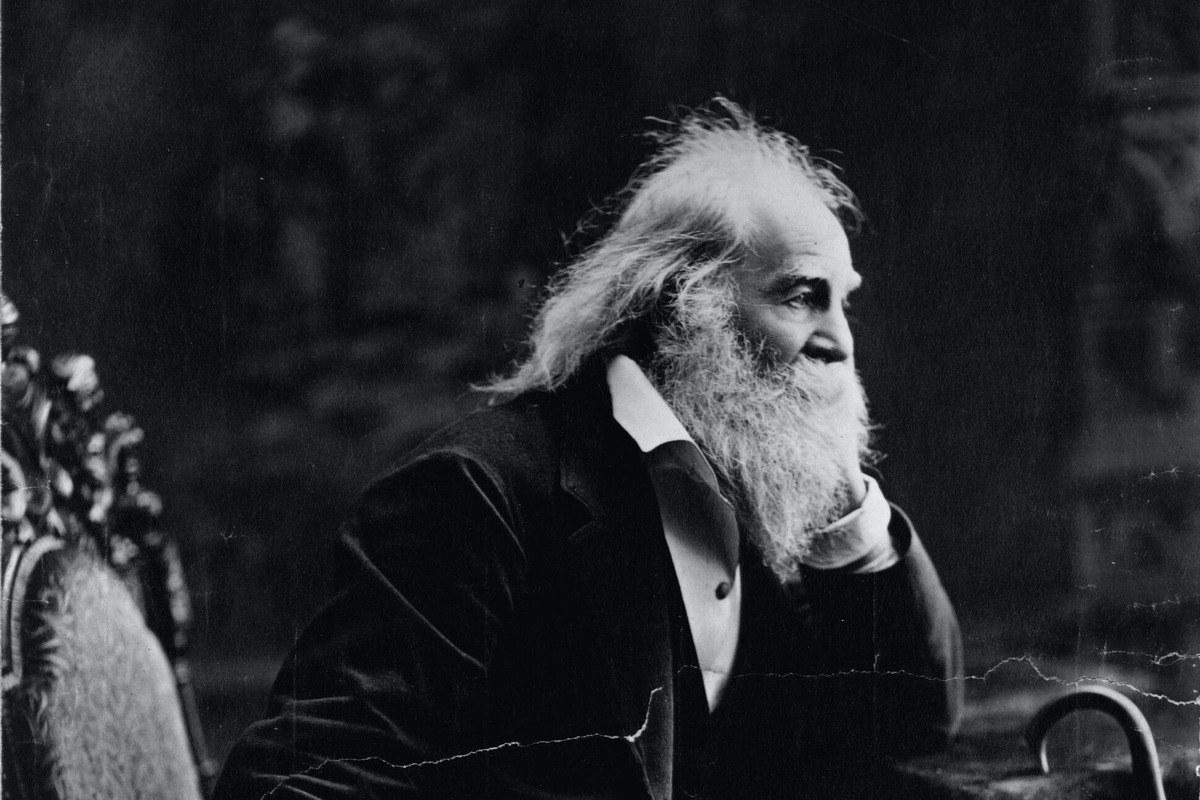
Ever wondered about the man behind the mesmerizing verses of "Leaves of Grass"? Walt Whitman, a name synonymous with American poetry, has intrigued readers and scholars alike for generations. But what really makes this literary giant tick? From his unorthodox writing styles to his profound impact on the American literary landscape, Whitman's life is a tapestry of fascinating facts and stories. Did you know that Whitman's work was considered controversial in his time? Yes, indeed! His bold expressions of identity, sexuality, and the human spirit broke conventions and paved the way for future generations of writers. Dive into the world of Walt Whitman with us as we uncover 13 intriguing facts about his life, work, and legacy that continue to inspire and captivate audiences around the globe. Get ready for a journey back in time, where words weave magic and history comes alive!
Key Takeaways:
- Walt Whitman, the father of free verse, revolutionized poetry by celebrating the human body, nature, and democracy in his work, influencing generations of poets and writers.
- Whitman's legacy as a poet and humanist continues to inspire people worldwide, with his ideas about democracy, individuality, and the beauty of the natural world shaping art, activism, and thought.
Who Was Walt Whitman?
Walt Whitman, an American poet, essayist, and journalist, revolutionized the world of poetry with his unique style and themes. Born on May 31, 1819, in West Hills, New York, Whitman's work, especially his poetry collection "Leaves of Grass," introduced a new, free verse form that deviated from the strict, rhyming patterns of his contemporaries.
Early Life and Career
-
Whitman's family moved to Brooklyn when he was just four years old, exposing him to the bustling urban life that would later influence his poetry. Despite having limited formal education, Whitman's voracious reading habits laid the foundation for his literary career.
-
Before becoming a celebrated poet, Whitman worked as a teacher, journalist, and government clerk. These diverse experiences enriched his understanding of American society, its people, and the issues they faced.
"Leaves of Grass" and Its Evolution
-
"Leaves of Grass," first published in 1855, was Whitman's groundbreaking poetry collection. He continued to edit and expand this work throughout his life, with the final "deathbed" edition published in 1892.
-
Unlike other poets of his time, Whitman celebrated the human body, nature, and the spirit of democracy in his work. His open discussion of sexuality and the human condition was controversial but ultimately influential in shaping modern poetry.
Whitman's Influence on American Literature
-
Whitman is often called the father of free verse. His style and themes paved the way for future generations of poets to experiment with form and subject matter.
-
His work has been a source of inspiration for countless poets and writers, including Allen Ginsberg, Langston Hughes, and even Bram Stoker.
Whitman During the Civil War
-
The Civil War had a profound impact on Whitman. Moved by the suffering of the soldiers, he volunteered as a nurse in Washington D.C., an experience that deeply influenced his poetry.
-
His collection of poems, "Drum-Taps," reflects his experiences during the war and showcases his growth as a poet and humanist.
Whitman's Legacy
-
Whitman's poetry celebrated the idea of democracy and the individual's role within it. His belief in the inherent goodness and potential of every person resonates through his work.
-
Despite facing criticism during his lifetime, Whitman's reputation grew after his death on March 26, 1892. Today, he is considered one of America's most important poets.
-
His birthplace in West Hills, New York, is now a museum and a testament to his enduring legacy.
-
Schools, bridges, and parks across the United States have been named in honor of Whitman, reflecting his significant impact on American culture.
-
Whitman's influence extends beyond literature. His ideas about democracy, individuality, and the beauty of the natural world continue to inspire activists, artists, and thinkers around the globe.
Walt Whitman: A Legacy Beyond Words
Walt Whitman's journey through poetry and prose leaves an indelible mark on literature and culture. His work, celebrated for its beauty, depth, and innovation, transcends time, speaking to readers across generations. Whitman's embrace of universal themes—democracy, love, and the human spirit—challenges us to view the world through a lens of empathy and understanding. His legacy, a testament to the power of words, continues to inspire writers, thinkers, and dreamers. As we reflect on his contributions, let's carry forward the spirit of curiosity and openness that Whitman championed. His poetry, a bridge between past and present, invites us to explore the depths of our own humanity and the world around us. Whitman's voice, though from another era, resonates with a timeless echo, urging us to live with passion and purpose.
Frequently Asked Questions
Was this page helpful?
Our commitment to delivering trustworthy and engaging content is at the heart of what we do. Each fact on our site is contributed by real users like you, bringing a wealth of diverse insights and information. To ensure the highest standards of accuracy and reliability, our dedicated editors meticulously review each submission. This process guarantees that the facts we share are not only fascinating but also credible. Trust in our commitment to quality and authenticity as you explore and learn with us.


